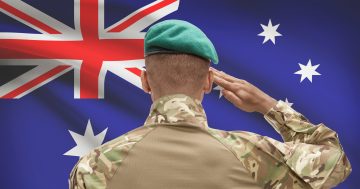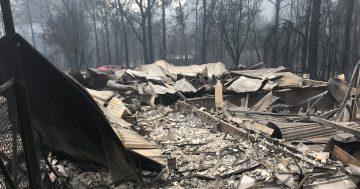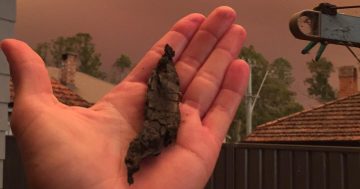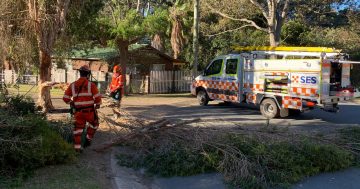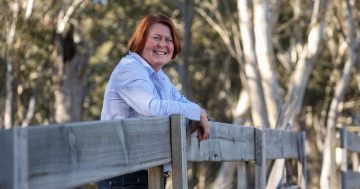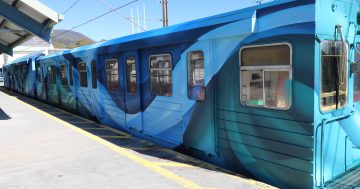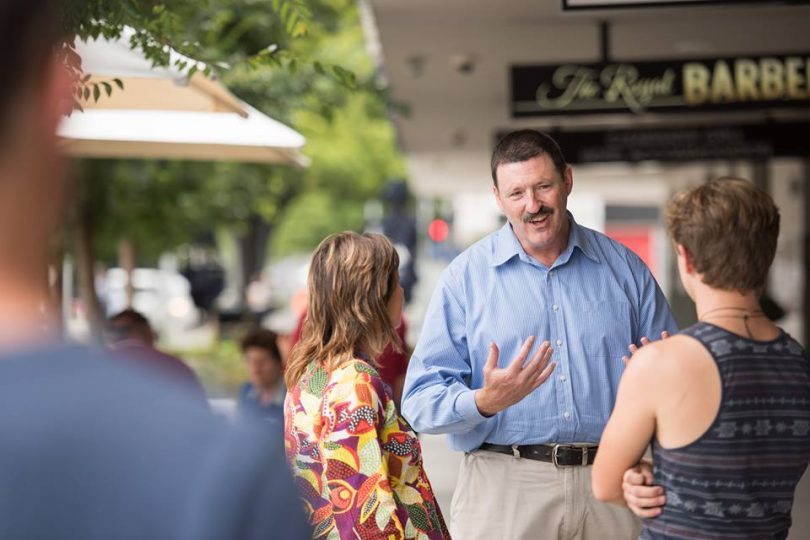
Mike Kelly, Member for Eden-Monaro. Photo: Mike Kelly Facebook.
“We have never before been under threat east to west, north to south. The whole region has been smashed,” Federal Member for Eden-Monaro Mike Kelly says of the South East fire disaster.
He’s considering how we respond to future catastrophic events as a region and as a nation.
“Obviously we need to be better prepared as a nation to come to grips with disasters on this scale. And addressing it will require a mobilisation of national will,” he says.
He’s less certain, however, that a Royal Commission, currently going to Cabinet for consideration, is the right approach for a process of national review.
Kelly believes that while Royal Commissions suit deep, complex and often historical issues as exercises in truth-telling and national reflection, the fire disaster urgently requires concrete outcomes and a strategic national plan.
“There are really important issues to tackle in how that’s designed. We must deeply understand what we’re facing, what the projections mean. From there we’ll need a deep assessment of capability and personnel challenges to address that threat we’ve defined.
“We’d then look at a whole range of command and control, communications, liaison, planning and framework aspects of how we respond to these mega-disasters on a national scale.”
He suggests that a major national review should be supported by authoritative experts from research and advisory agencies including CSIRO and the Bureau of Meteorology and tertiary researchers, with input and involvement from responder organisations.
Kelly says that kind of planning is the territory of a white paper, and must also incorporate a rigorous and realistic approach to climate change.
“What we’re facing now was projected to happen. We know it won’t get any better – it will get worse – so climate change policy needs to be sorted out as an overarching priority to give our kids and grandkids a fighting chance of coping with the future. I hope that emerges as one of the things that forges national will from this disaster,” he says.
Practically speaking, Kelly points to inherent challenges in a bushfire season that’s expanded by almost 20 per cent from the 1970s and now overlaps with the Northern Hemisphere. That means, for example, that international air assets can’t be shared as easily.
There’s also a major challenge in regard to personnel. Kelly says he’s been speaking to firefighters who have been doing back to back rotations for six weeks. “And frankly, they are buggered,” he says.
As a former senior officer himself, he sees the callout of the Australian Defence Force (ADF) callout is an obvious answer. “There is so much relevant capability in the Army and Reserves we could have had out there that’s being illustrated now that those capabilities are in play.
“We’re seeing engineers and heavy plant at work, moving water in bulk carriers, route clearance, assets like mobile hospitals, evacuation on a large scale, effective communications and air control. We’re even seeing Army vets helping injured wildlife. Defence has the ability to do logistics on the large scale that’s required with a major disaster.”
He thinks the fires crisis has provided an important conceptual breakthrough on how and where we can deploy ADF and Reserve forces so that future responses are more streamlined, efficient, effective and timely.
Beyond that, Kelly envisages a potential civil defence corps. This could preserve the voluntary organisation model but apply the same support mechanisms that exist for Defence Reserves, including payroll tax exemptions.
“We need to explore as many incentives as we can for getting younger people, in particular, to engage with the RFS by providing voluntary incentive options, and perhaps considering a community service gap year after high school.
“Wouldn’t it be great if people got first aid training and disaster training to protect their communities as a result?”
Beyond that, he sees the prolonged period of disaster recovery as an opportunity to invest in viable rural and regional industries.
“We’re looking at a 10-year recovery period for Batlow apple growers, $70 million of damage to timber plantations. That’s why climate change provides us with opportunities that assist recovery. For example, we could resuscitate timber by putting in plantations that are carbon sinks, earning money from the moment they’re planted.
“What I’m trying to do is promote discussion and people having ideas. I’m happy for them to disagree as long as they put up something in return and make a constructive contribution.”
Original Article published by Genevieve Jacobs on The RiotACT.



